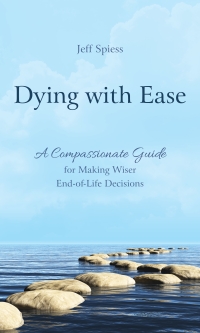Because You Want to Do It Well
Why should you bother reading about dying, especially your own dying? There are plenty of other depressing things to think about every day, national and global issues like dysfunctional politics or climate change, everyday depressions like the argument you had with your spouse, anxiety about your job security, or the fact that the baseball team you root for stinks this year. Why add one more piece of misery that you can’t control anyway?
The most important reason to think about dying is that you are going to do it, and it just might be the most important thing that you ever do. When someone dies, the culture around them stops in its tracks, pauses other activities and priorities, centers on the one who is newly absent, and takes stock of who that person was and is for them. When you die, everybody’s attention will be on you, they will review things that you said, events they shared with you, and particularly what happened near the end, how you lived your dying.
I can recall several conversations and numerous side comments when which people expressed their thought of the moment about good and bad ways of dying. Sometimes the wish was for a sudden, unforeseen event, a heart attack or stroke that kills instantly and with minimal or at least brief pain. Others imagine a period of illness or aging, with gradual decline, a recognized ending, with opportunity to wrap up their business, say their good-byes. I suspect that, for most people, these preferences are fluid, influenced by whatever personal experience or news item or movie brought the idea up.
There are some images, though, that are more universal. Multiple polls have shown what we Americans want the end of our lives to be like. Even for us hoping for a sudden ending, we want to die at home, free from pain, clean and dignified, able to be with those we care the most about. But far too many of us end up in hospitals, tethered with tubes and restraints, drugged so we don’t fight the machines we’re tied to, and mostly alone. And a gigantic reason for this disconnect is that if we want our dying to go the way we hope, we have to plan for it. And in order to plan for it, we must recognize that it will happen.

